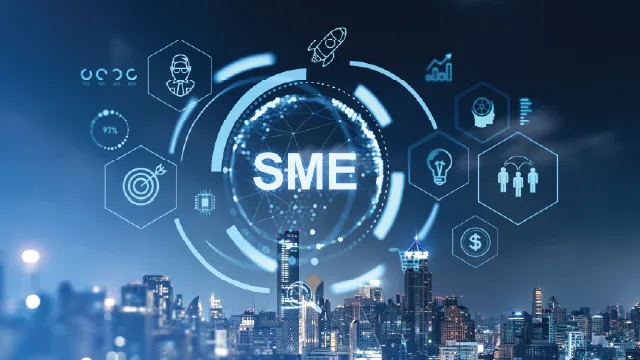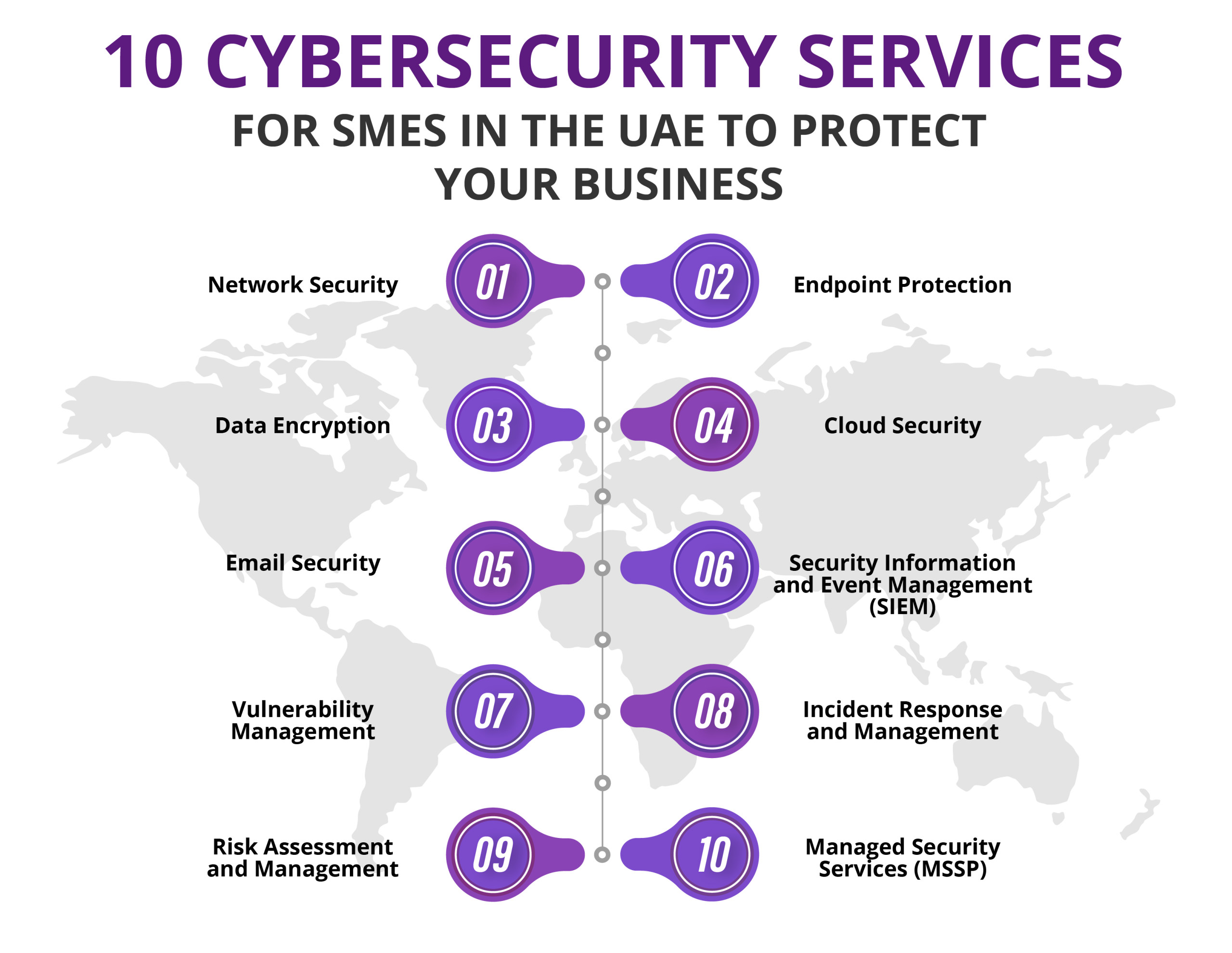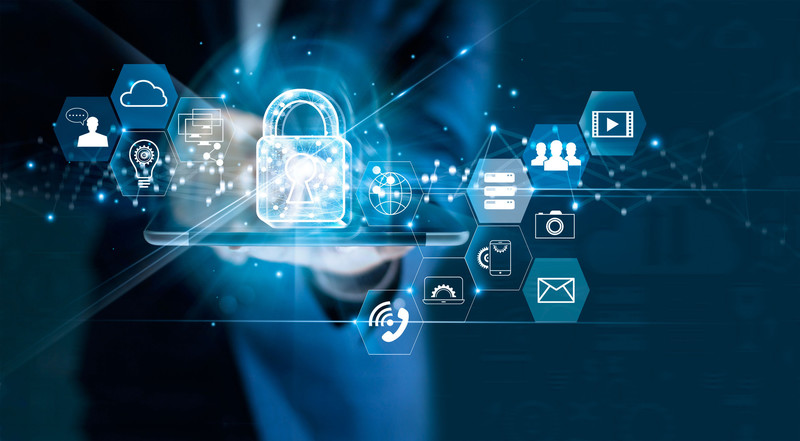
Small and Medium Enterprises (SMEs) in the UAE face an increasing array of cybersecurity threats.
From ransomware attacks to data breaches, the risk of cyber incidents can jeopardize a business’s reputation, financial standing, and customer trust.
Fortunately, cybersecurity services are now more accessible and customizable to meet the needs of smaller businesses.
In this blog post, we will explore 10 critical cybersecurity services for SMEs in the UAE that can protect your business from potential threats.
Network Security
Network security is one of the most fundamental aspects of cybersecurity, aimed at protecting the integrity and confidentiality of your data and network traffic.
SMEs in the UAE are vulnerable to various forms of network-based attacks, such as Distributed Denial of Service (DDoS) attacks and unauthorized access.
A network security service typically involves the implementation of firewalls, intrusion detection systems (IDS), and intrusion prevention systems (IPS) to monitor and control incoming and outgoing network traffic.
These solutions help detect suspicious activities, block malicious traffic, and provide alerts in real-time, ensuring that any security breach is quickly mitigated.
- Prevents unauthorized access to your network.
- Protects sensitive data and intellectual property.
- Improves the overall stability and performance of the network.
Endpoint Protection
As the number of devices connecting to a network increases, endpoint protection becomes crucial. This service involves securing all devices—such as computers, smartphones, and tablets—that access your business’s network.
Endpoint protection services include the installation of antivirus software, malware protection, and data encryption tools that safeguard devices against various threats.
Additionally, endpoint protection often includes device management policies that ensure only authorized devices can access the network.
- Prevents malware infections and data leaks.
- Ensures compliance with regulatory requirements.
- Monitors and manages all endpoints for vulnerabilities.

Data Encryption
Data encryption is essential for protecting sensitive information from unauthorized access, both in transit and at rest.
SMEs that handle customer data, financial records, or confidential business information should prioritize data encryption services to ensure that even if data is intercepted or stolen, it remains unreadable to attackers.
Encryption tools encrypt files, emails, and databases, making them secure even if a cybercriminal gains access to your system.
Additionally, using strong encryption algorithms ensures that the data is not easily decrypted without the proper encryption keys.
- Protects data confidentiality and privacy.
- Reduces the risk of data breaches.
- Enhances customer trust and confidence.
Established in 1982, GCG provided cutting-edge solutions related to digital transformation, IT services, audio-visual systems, and managed print services to support organizations in their transformation journey. (CTA)
Cloud Security
As more SMEs in the UAE adopt cloud computing services, ensuring cloud security has become a top priority. Cloud-based platforms often store critical data, making them attractive targets for hackers.
Cloud security services are designed to safeguard your data stored in the cloud, securing it from unauthorized access, loss, or corruption.
A cloud security service includes tools like access control management, secure data storage, and monitoring for malicious activity.
Furthermore, businesses can implement secure backup and disaster recovery solutions to protect their data in the event of a breach or cyberattack.
- Secures your cloud-hosted data from cyber threats.
- Enables secure access control and monitoring.
- Provides backup and disaster recovery options.
Email Security
Email remains one of the most common vectors for cyberattacks. Phishing, spam, and malware-laden attachments are some of the most prevalent threats targeting SMEs in the UAE.
Email security services use various techniques to filter and monitor incoming and outgoing email traffic for signs of malicious activity.
This service typically includes spam filters, email encryption, and phishing detection systems that block suspicious emails before they can cause harm.
For businesses, securing their email accounts is vital to avoid compromising sensitive communication or falling victim to a data breach.
- Protects against phishing attacks and malicious attachments.
- Prevents unauthorized access to business emails.
- Secures sensitive information sent via email.
Security Information and Event Management (SIEM)
SIEM services provide businesses with the ability to monitor and analyze their IT infrastructure in real-time.
These solutions collect log data from various sources, such as network devices, servers, and applications, and then analyze the data for signs of potential security incidents.
SIEM tools offer real-time alerts, comprehensive reports, and actionable insights that help identify and respond to security breaches quickly.
For SMEs, this service enables efficient threat detection and incident response while also meeting compliance requirements.
- Provides real-time monitoring of your network and systems.
- Enhances the ability to detect security incidents early.
- Offers detailed analysis and reporting for compliance purposes.
Vulnerability Management
Regularly identifying and addressing vulnerabilities within your network and systems is critical to preventing cyberattacks.
Vulnerability management services help SMEs identify security weaknesses in their IT infrastructure before cybercriminals can exploit them.
This service includes automated scans, manual penetration testing, and the creation of action plans to address discovered vulnerabilities. By continuously monitoring for new vulnerabilities and patching software, businesses can stay ahead of evolving threats.
- Identifies weaknesses in your infrastructure.
- Prevents exploitation of unpatched vulnerabilities.
- Helps maintain compliance with security standards.
Incident Response and Management
Despite the best preventive measures, cyberattacks can still occur. An incident response and management service provides businesses with a well-structured plan to address and mitigate the impact of a cyberattack.
This service includes the development of an incident response strategy, the establishment of communication protocols, and the provision of expert support to guide businesses through the response process.
Effective incident response ensures that your business can recover quickly from an attack, minimize damage, and maintain business continuity.
- Helps businesses respond quickly to security incidents.
- Reduces the impact of cyberattacks on operations.
- Provides expert guidance during the recovery process.
Risk Assessment and Management
Risk assessment and management services help SMEs identify potential cybersecurity risks and develop strategies to mitigate them.
This service typically involves conducting a thorough evaluation of your business’s IT infrastructure, identifying potential threats, and assessing their impact.
By understanding the risks your business faces, you can prioritize your cybersecurity efforts and allocate resources more effectively. Additionally, risk management services help ensure that your business remains compliant with cybersecurity regulations and standards.
- Identifies potential cybersecurity risks.
- Helps businesses prioritize security investments.
- Enhances compliance with cybersecurity regulations.

Managed Security Services (MSSP)
For SMEs that lack the resources or expertise to manage their cybersecurity in-house, a Managed Security Service Provider (MSSP) offers a comprehensive solution.
MSSPs provide 24/7 monitoring, threat detection, and incident response services, along with proactive cybersecurity measures to protect your business.
By outsourcing your security to an MSSP, you can ensure that your business has continuous protection against evolving threats without the need to hire a dedicated in-house team. This is especially beneficial for SMEs with limited IT resources.
- 24/7 monitoring and protection.
- Proactive threat detection and management.
- Access to expert cybersecurity knowledge.
FAQs
What are cybersecurity services for SMEs?
Cybersecurity services include tools and strategies designed to protect your business from cyber threats, such as hacking, malware, and data breaches.
Why do SMEs need cybersecurity services?
To safeguard sensitive data, prevent financial loss, and protect your business’s reputation from cyber threats.
What is network security?
Network security involves protecting your company’s network from unauthorized access, ensuring safe and efficient data transmission.
How can endpoint protection help my business?
It secures devices like computers, phones, and tablets, reducing the risk of cyber attacks from remote devices accessing your network.
What is threat detection and response?
It involves identifying potential threats early and responding quickly to prevent data breaches or disruptions to business operations.
What is vulnerability management?
This service identifies and fixes weaknesses in your systems to prevent exploitation by hackers.
How does a firewall protect my business?
A firewall acts as a barrier between your business’s internal network and external threats, blocking malicious traffic and unauthorized access.
What is cloud security?
Cloud security ensures that your business’s cloud-based data and applications are protected from unauthorized access and cyber attacks.
How does employee training help with cybersecurity?
Training educates employees about common cyber threats, how to identify phishing attacks, and best practices for maintaining security.
Why is a cybersecurity audit important?
A cybersecurity audit assesses your current security measures, identifying gaps and recommending improvements to safeguard your business from potential threats.
Conclusion
In an era where cyber threats are more sophisticated and prevalent than ever, SMEs in the UAE must prioritize cybersecurity to safeguard their business operations, customer data, and digital assets.
The 10 cybersecurity services outlined in this post provide a solid foundation for any SME looking to bolster its cybersecurity posture.
By investing in network security, endpoint protection, data encryption, cloud security, and other essential services, SMEs can effectively reduce the risk of cyberattacks and ensure that their businesses remain secure in the face of evolving digital threats.



